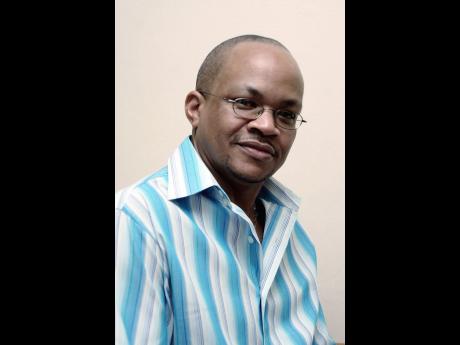Michael Abrahams | Separating fact from fiction in the abortion debate
As the abortion debate rages, and persons on both sides plead their cases, many misleading and dishonest statements are being posited in the public space.
Firstly, the generalised statements that “abortion is murder”, or “abortion means killing babies”, are misleading. After the sperm fertilizes the egg, the progression of development in a healthy pregnancy is from embryo to foetus to baby. Many of us refer to foetuses in the womb as babies, especially as they develop and begin to move. However, when a woman with a regular monthly cycle misses her period for a week, the truth is that there is no baby in her uterus.
What is present is a gestational sac, a hollow ball about the size of a guango pea. There is no nervous system, no heartbeat, no foetus… no baby. As a matter of fact, there are instances where a foetus never develops in the sac, a type of miscarriage known as an anembryonic pregnancy. So, if a pregnancy is terminated at this stage, there is no “baby” to “murder”. Also, if embryos and foetuses really were people, they would be included in censuses. But they are not.
On the other hand, when some pro-choice advocates say that when an abortion is performed you are merely removing “a bunch of cells”, they too are being disingenuous. As the embryo develops to a foetus it takes on the characteristics of a human being. A nervous system with a brain develops, a heart appears and beats, and movements of the spine and limbs occur. At this point, referring to the foetus as “just a bunch of cells” is, as anti-abortion folks would say, dehumanising.
Many anti-abortion advocates would have you believe that all women who have had abortions regret having them, fall into severe depression, and are scarred for life. This is a false assumption. Do some women suffer psychological morbidity after having an abortion? Absolutely. But many do not.
Being scientifically minded, I prefer to rely on facts, rather than make assumptions, and decided to conduct a survey in my office and ask every woman who registers to see me for a consultation, and has had abortions, two questions:
1) Do you regret having the abortion/abortions?
2) If you could go back in time, knowing what you know now, and were faced with the same circumstances, would you make the same decision/decisions again?
Of the 70 women interviewed so far, 20 (29 per cent) have had abortions. 13 women had 1 abortion, 2 had 4, 3 had 2, and 1 had 6, giving a total of 33 abortions. The population surveyed is small, and the survey is ongoing, but so far none of the women interviewed admitted regretting having an abortion, and all said that faced with the circumstances they were faced with then, they would make the same decision again. Human beings have different levels of resilience, and it is wrong to assume that all women who have abortions will regret it. On the other hand, it is also true that some women regret having children. So, using the argument of regret is a weak one in presenting an anti-abortion stance.
Another bone of contention in the debate is the “woman’s body” argument. Anti-abortion advocates will say that a foetus has different DNA from the woman carrying it and is a different body. But whether the foetus is considered to be a separate entity or not, there is one undeniable fact that stares us in the face, and it is that when a pregnancy is carried to viability, it is a woman’s body that is being affected. It is the woman who will experience changes in her body, some of which may place her health at risk and can be permanent.
Recently I heard an anti-abortion advocate say that “abortion hurts women”. This statement is misleading. Yes, an abortion can negatively affect a woman, but carrying a pregnancy to term is riskier than having a first trimester abortion performed by a trained professional. In fact, the two leading causes of maternal mortality (pregnancy related deaths) are postpartum haemorrhage (bleeding after delivery) and hypertensive disorders that develop during pregnancy. Both conditions occur during mid to late pregnancy, after the period when abortions would be performed. It is also a fact that in societies where strict anti-abortion laws exist, maternal mortality rates tend to be higher.
It is also clear that many persons taking part in this debate do not even know what an abortion is. An abortion, by definition, takes place when a pregnancy that has not reached viability is terminated. In other words, before the foetus can exist outside the uterus. I have heard people talking about abortions at nine months, which is ridiculous, as at nine months a foetus, if delivered, is able to survive outside the womb.
Anti-abortion advocates also try to dismiss the fact that abortion is a women’s health issue. But it clearly is. It may be a moral issue as well, but the two are not mutually exclusive. Health includes physical, mental and social well-being, and pregnancy can and does affect a woman’s physical, mental and social well-being. Denying that this is a women’s health issue does women a grave disservice.
Valid points are to be found in many arguments from pro-choice and anti-abortion advocates. The issue is not black-and-white, and rational discourse requires honesty, humility and empathy from both sides. We have a right to voice our opinions, but not to distort the truth or lie to further our agendas.
- Michael Abrahams is a gynaecologist and obstetrician, comedian and poet. Email feedback to columns@gleanerjm.com and michabe_1999@hotmail.com, or tweet @mikeyabrahams

